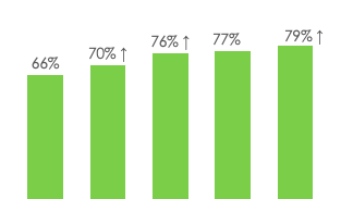Co-opting your opponents is how successful politicians ensure their legacy. It’s also how industries can defend themselves against their critics.
The consumer electronics industry now appears to be engaged in the mother of all co-options when it comes to the environmental movement.
Let’s review. If there is a unifying theme in much of the environmental movement, it is anti-consumption. Austerity for the sake of the planet is the cardinal virtue. (See “No Impact Man” for a more extreme example). Responsible stewardship of the planet’s limited resources means conserving and protecting them, not devouring them for your entertainment. The profit motive — indeed, capitalism itself — tends to be viewed suspiciously, as mindlessly rapacious — an enabler of the planet’s misfortune.
If there is a unifying theme in the consumer electronics industry, it is quite the reverse: consume your bloody heart out. Like TV? Here’s a 150-inch plasma. Like music? Put a speaker in every room of your house. It is, fundamentally, about selling the latest thing (a thing that draws its power from a coal-fired, carbon-spewing electric grid). The strong preference is to sell a lot of these things. And their accessories. And then remind you in a year that the thing you bought is now obsolete and really should be replaced.
So it would appear as if the two camps are in fundamental tension. But as you’re no doubt aware, this was a “Green CES.” Every manufacturer was burnishing their environmental cred — either through recycling announcements, improved manufacturing efficiencies or lower power consumption devices.
Now there are several ways to interpret this. Cynics will say it’s simply marketing — an attempt to cash in on the cachet of a now-trendy movement. While I think there’s an element of that at play, I don’t think it’s accurate, in part because most of the industry’s big players are publicly traded companies. Altruism for altruism’s sake doesn’t sit well with shareholders. Improving efficiencies in manufacturing (along with recycling) can also be profitable. Shareholders like that.
I tend to think it’s a quintessential case of having your cake (or 150-inch plasma) and eating (or watching) it too. It is a small example of a larger national debate about energy policy: a balancing act between our consumptive lifestyles and the perceived needs of the planet. In that balancing act, neither side wants to tilt too far. The CE industry wants to address environmental concerns without fundamentally abandoning its mission of better, larger, more. Environmentalists want to harness capitalism’s creativity without abandoning its core anti-consumption message.













